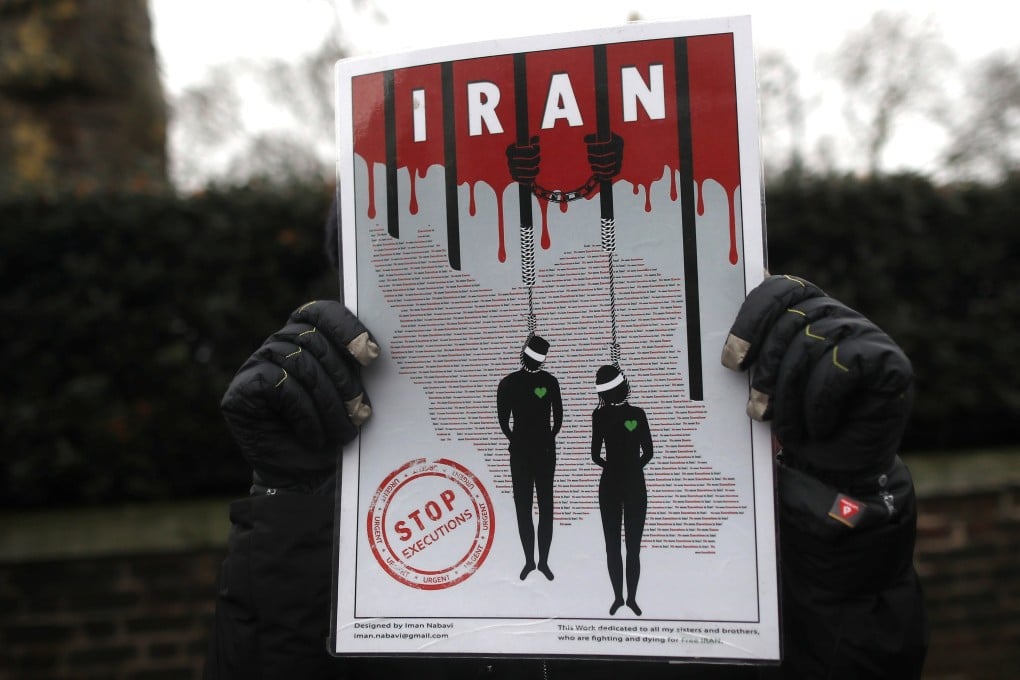Child among 230 executed in Iran this year, UN says
- Iran implementing the death penalty ‘at an alarming rate’, UN independent investigator says
- Iran was the top executioner in the Middle East last year, according to Amnesty International

Iran executed over 250 people, including at least four child offenders, in 2020 and so far this year has carried out 230 executions that included nine women and one child who was executed in secret, the UN independent investigator on human rights in Iran said on Monday.
Javaid Rehman told the UN General Assembly’s human rights committee that Iran continues to implement the death penalty “at an alarming rate” and said “the absence of official statistics and lack of transparency around executions means that this practice escapes scrutiny resulting in serious abuses preventing accountability”.
According to Amnesty International, Iran was the top executioner in the Middle East last year, accounting for more than half the region’s 493 executions, followed by Egypt, Iraq and Saudi Arabia. Amnesty’s annual figures exclude China, where executions believed to number in the thousands are classified as a state secret, and omit executions from some countries marred by conflict like Syria.
Rehman said his latest report highlights serious concerns over the grounds Iran uses for imposing the death penalty, such as “vague national security charges”. Iran also has “deeply flawed judicial processes, where even the most basic safeguards are absent,” he said.
“These elements, and the heavy reliance by courts on forced confessions extracted under torture and other fair trial violations lead me to conclude that the imposition of the death penalty in the Islamic Republic of Iran constitutes arbitrary deprivation of life,” Rehman said.
Rehman, a Pakistani-born professor of human rights and Islamic law at Brunel University in London, called it “imperative” for Iran to undertake criminal law and justice reforms, starting “most urgently” with a moratorium on the death penalty for child offenders.